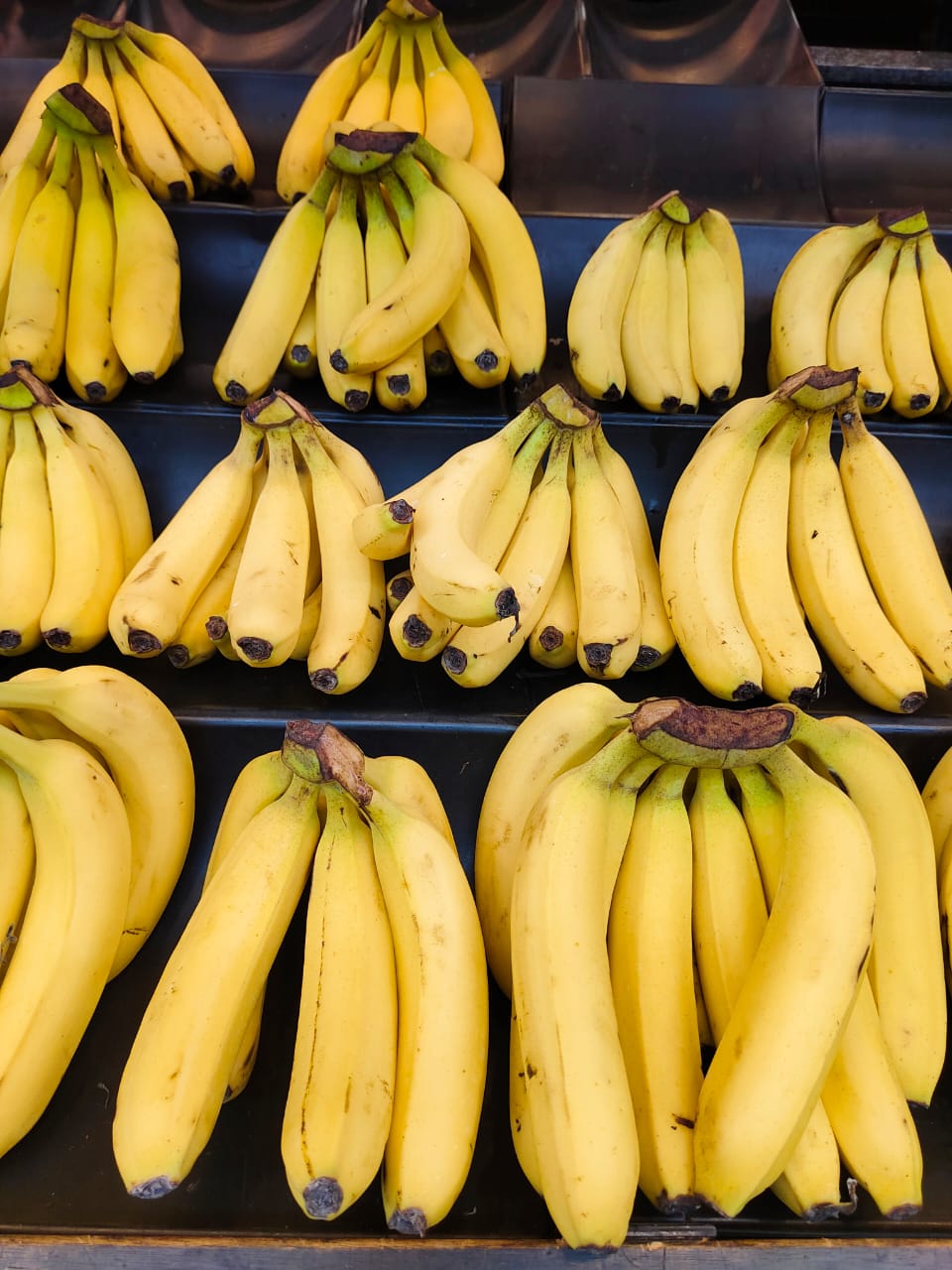
Banana is a good source of potassium (K)


i.
Fluid Balance – Potassium works with sodium to maintain proper hydration levels
in cells. During fasting, when fluid intake is limited, adequate potassium
helps prevent dehydration and electrolyte imbalances.
ii.
Muscle Function – Potassium is essential for muscle contractions and nerve
signaling. A deficiency can lead to muscle cramps and weakness which can be
exacerbated during fasting when electrolyte levels fluctuate.
iii.
Prevention of Fatigue – Low potassium levels can cause fatigue and weakness.
Maintaining sufficient potassium intake during non-fasting hours helps support
energy levels and overall well-being.
iv.
Heart Health – Potassium helps regulate heartbeats. An imbalance may lead to
irregular heart rhythms, which can be dangerous, especially when fasting.
According
to the Malaysian Recommended Nutrient Intake (RNI) 2017, the recommended daily
potassium intake for adults in Malaysia is 120 mmol (4700 mg), which is
slightly higher than the WHO's recommended 90 mmol (3510 mg) for adults. Since
potassium intake is very low among the adults in Malaysia, further education
and promotional campaigns regarding daily consumption of potassium-rich diet
and its benefits to health need to be tailored for the Malaysian adult
population.
Bananas
or known as Musa acuminata Colla are
a widely consumed staple food in many countries and are renowned for their
pharmacological benefits, rich nutritional profile, and bioactive compounds.
Banana is a good source of minerals like potassium (K). The concentration of
potassium is also high in watermelon (Citrullus
lanatus).
Consuming
potassium-rich foods like bananas and watermelon is important for several
reasons:
i.
Electrolyte Balance: Potassium is a key electrolyte that helps maintain fluid
balance in the body, which can be disrupted during fasting. Maintaining proper
electrolyte levels is essential for muscle function and overall bodily processes.
ii.
Muscle Function: Adequate potassium intake helps prevent muscle cramps and
weakness, which can be more likely when you go without water throughout the
day.
iii. Heart Health: Potassium plays a vital
role in maintaining a healthy heart rhythm, regulating blood pressure, and
supporting overall cardiovascular health.
iv.
Hydration: Watermelon, with its high water content, helps maintain hydration,
which is essential after a day of fasting.
v.
Nutrition and Satiety: Potassium-rich foods often contain other essential
nutrients and fiber, helping you stay satisfied and nourished during
non-fasting hours.
In
Malaysia, various traditional foods are rich in potassium. Here are some
examples:
i.
Ulam (Raw Vegetables): Dishes made with raw vegetables like petai (stink bean)
and ulam raja often contain potassium.
ii.
Durian: Known as the "king of fruits," durian is not only rich in flavor
but also high in potassium.
iii.
Jackfruit (Nangka): This tropical fruit is versatile and provides a good amount
of potassium.
iv.
Sweet Potatoes (Ubi Keledek): A popular ingredient in Malaysian desserts and as
a side dish, sweet potatoes are rich in potassium.
v.
Spinach and Other Leafy Greens: Local greens like sawi and bayam (amaranth) are
commonly used in Malaysian cooking and are good sources of potassium.
vi.
Coconut Water: Often consumed as a refreshing drink, coconut water is high in
potassium and hydrating.
vii.
Tamarind (Asam Jawa): Used in many Malaysian dishes for flavoring, tamarind
also contains potassium.
viii.
Legumes: Dishes that include legumes, such as lentils or chickpeas, can be
found in various Malaysian recipes.
ix.
Fish: Certain types of fish such as mackerel (ikan kembung), snapper (ikan merah)
and yellowfin tuna (ikan tuna), and seafood such as prawns and squid used in
Malaysian cooking can also contribute to potassium intake.
How
can you ensure that potassium-rich foods like bananas, watermelon, avocados,
sweet potatoes, spinach, and coconut water to maintain proper hydration and
muscle function during fasting?
i.
Include Potassium-Rich Foods in Suhoor and Iftar: Make sure to include foods
high in potassium in your pre-dawn (Suhoor) and evening (Iftar) meals. Foods
like bananas, watermelon, avocados, sweet potatoes, spinach, and coconut water
are excellent choices.
ii.
Stay Hydrated: Drink plenty of fluids during non-fasting hours to stay hydrated
and maintain electrolyte balance, especially potassium levels.
iii.
Balanced Diet: Ensure your diet includes a variety of fruits, vegetables, and
lean proteins to supply essential nutrients, including potassium.
iv.
Avoid Excessive Caffeine and Sugar: These can cause dehydration and electrolyte
imbalances. Instead, opt for water, herbal teas, and natural fruit juices.
v.
Consider Supplements: If you're concerned about not getting enough potassium
from your diet, consider potassium supplements. However, consult a healthcare
professional before starting any supplementation.
v.
Monitor Your Health: Be mindful of signs of potassium deficiency, such as
muscle cramps, fatigue, and irregular heartbeats. If you experience these
symptoms, seek medical advice promptly.